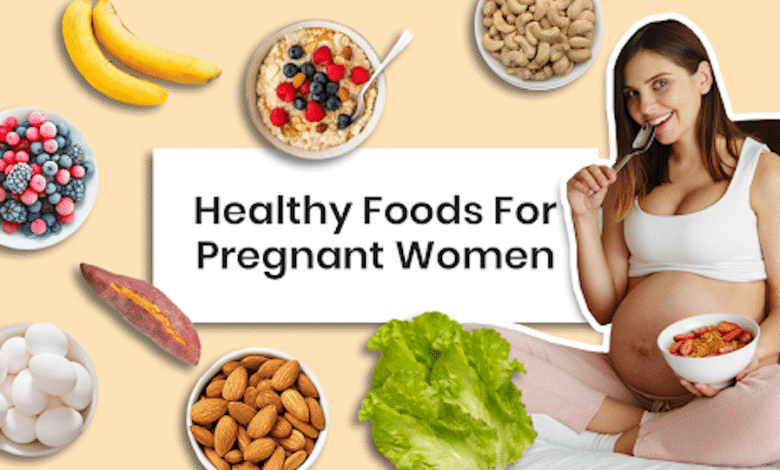“Keto Diet Plan for Pregnant Women: The Ultimate Guide to Safety and Nutrition”

The Ultimate Guide to the Keto Diet Plan for Pregnant Women: Is It Safe?
Introduction

Pregnancy brings with it a variety of changes, and many women seek ways to manage their health and weight during this period. One keto diet plan that has gained popularity in recent years is the Keto Diet. While the diet is often used for weight loss, it has prompted some expectant mothers to consider whether it could be beneficial during pregnancy.
This post explores whether the keto diet is safe during pregnancy, weighing the benefits and risks, and offering expert advice on how to approach it while expecting.
Read Also What Is the Best Diet During Pregnancy? A Keto Expert’s Guide to Safe and Healthy Eating
What Is the Keto Diet?
The Science Behind the Keto Diet
The ketogenic diet, or keto diet, is a high-fat, moderate-protein, and very low-carb eating plan that forces the body into a state called ketosis. During ketosis, your body shifts from using carbohydrates as its primary energy source to burning fat for fuel. This change is why the diet has become popular for weight loss.
How Does the Keto Diet Work for Weight Loss?
By drastically reducing carbohydrates, the keto diet helps regulate insulin levels and encourages the body to burn stored fat. As a result, people can experience significant weight loss. However, it’s important to note that while this diet may be effective for some, it may not be the best choice for pregnant women without proper medical supervision.
The Keto Diet During Pregnancy: Is It Safe?
Can Pregnant Women Safely Follow the Keto Diet?
Pregnancy requires careful attention to nutrient intake to support both the mother and baby. Following the keto diet while pregnant is controversial. Some studies suggest that it may be safe under certain conditions, while others warn of potential risks. As the keto diet involves restricting carbs, which are an essential source of energy for both mother and baby, some experts advise caution.
Risks of Keto During Pregnancy
The main concerns with following the keto diet during pregnancy are nutrient deficiencies, such as a lack of fiber, B vitamins, and minerals like potassium and magnesium. Additionally, the diet’s impact on fetal development, particularly brain growth, is not well understood.
When Should Pregnant Women Avoid the Keto Diet?
If you have any pregnancy complications, such as gestational diabetes, hypertension, or kidney issues, it is advisable to avoid the keto diet. Always consult with your healthcare provider before starting any new diet plan during pregnancy.
Health Benefits of the Keto Diet for Pregnant Women
Better Control Over Blood Sugar
For pregnant women, managing blood sugar is crucial. The keto diet’s low carbohydrate content may help stabilize blood sugar levels and reduce the risk of gestational diabetes.
Weight Management
Pregnancy weight gain can be a concern for some women. A keto diet could help manage weight without gaining excess fat, which can be beneficial for both the mother and baby’s health.
Reducing the Risk of Gestational Diabetes
By stabilizing blood sugar levels, the keto diet can potentially lower the risk of gestational diabetes—a condition that affects many pregnant women, especially those who are overweight or have a family history of diabetes.
Potential Risks of the Keto Diet for Pregnant Women
Nutrient Deficiencies
While the keto diet offers many benefits, it can also lead to nutrient deficiencies. Pregnant women need a wide variety of nutrients to support the growth and development of the baby. Without the proper balance of vitamins and minerals, deficiencies can occur.
Impact on Fetal Development
Pregnancy requires a consistent supply of nutrients, especially carbs for the developing brain. There’s still ongoing research into how ketosis affects fetal development, particularly in terms of brain function and cognitive development.
Keto Flu and Other Side Effects
Some pregnant women may experience keto flu, a temporary condition that can cause headaches, dizziness, fatigue, and nausea. These symptoms can be especially troubling for pregnant women who already experience morning sickness.
“Ultimate Ketogenic Pregnancy Meal Prep Guide: Healthy Keto Recipes for Expecting Moms”
How to Safely Follow the Keto Diet During Pregnancy
Key Considerations for Pregnant Women
If you decide to follow the keto diet during pregnancy, it’s essential to be cautious. Always monitor your blood sugar and ketone levels, and prioritize balanced meals that provide all the necessary nutrients.
Keto-Friendly Foods to Include in Your Diet
Focus on healthy fats like avocado, coconut oil, and olive oil. Protein-rich foods such as lean meats, fish, eggs, and cheese are great choices. Be sure to include plenty of leafy greens and low-carb vegetables for fiber and essential nutrients.
Essential Nutrients to Focus On
Pregnant women should ensure they’re getting enough folate, calcium, magnesium, and iron. Consider a prenatal vitamin supplement that covers these essential nutrients.
Avoiding Harmful Ingredients
It’s crucial to avoid processed and artificial ingredients, including sugar substitutes, as they can harm your health and affect your baby’s development.
How the Keto Diet Affects Your Baby
Ketosis and Its Impact on Fetal Development
There is limited research on how ketosis affects fetal development. While some studies suggest that ketosis may be safe for short periods, others argue that the low-carb approach could disrupt fetal brain development. The effects on the baby’s cognitive development are still uncertain.
Studies and Research on Keto During Pregnancy
While some animal studies show that low-carb diets can affect fetal development, there is still a lack of comprehensive research regarding the safety of the keto diet during pregnancy. Always consult with a healthcare provider before adopting this eating plan.
Consult With Healthcare Providers
Why a Doctor’s Approval Is Essential
Before embarking on any drastic diet change during pregnancy, including the keto diet, it is essential to consult with a healthcare provider. Your doctor will help determine if the diet is suitable for your individual health and pregnancy conditions.
What To Discuss with Your OB/GYN
Be sure to ask your OB/GYN about the potential risks and benefits of the keto diet, and inquire about specific nutrient needs that may need to be addressed while following this plan.
Alternatives to the Keto Diet During Pregnancy
Healthier Diet Plans for Pregnant Women
If the keto diet is not appropriate for you during pregnancy, consider alternatives like the Mediterranean diet, which emphasizes healthy fats, lean protein, and plenty of fruits and vegetables.
Balancing Carbs Without Extreme Restriction
A balanced approach to carbs is often best for pregnancy. Opt for whole grains, fruits, and vegetables that provide essential nutrients and energy for both mother and baby without the extremes of a low-carb diet.
Conclusion
While the keto diet may offer weight management and blood sugar benefits, it is essential to approach it with caution during pregnancy. Always consult with a healthcare provider to ensure both mother and baby are receiving adequate nutrition and care. A balanced approach to nutrition is the safest way to support a healthy pregnancy.
FAQs About the Keto Diet for Pregnant Women
1. Can I do Keto during pregnancy in my first trimester?
It’s best to avoid restrictive diets like keto during the first trimester, when nutritional needs are particularly high. Always consult with your doctor.
2. Does the keto diet harm the baby?
There are limited studies on this, but the keto diet could potentially affect fetal brain development due to the reduced intake of carbohydrates.
3. How many carbs should I eat while pregnant?
Pregnant women typically need around 175-210 grams of carbohydrates per day to support fetal growth and development.
4. Can I have a balanced diet and follow keto in pregnancy?
It’s important to focus on balance. Consider a modified version of the keto diet with more nutritious carbs and fewer extremes.
5. How should I transition out of keto after pregnancy?
Gradually reintroduce carbohydrates into your diet, focusing on whole grains and nutrient-dense foods to ensure a smooth transition.




